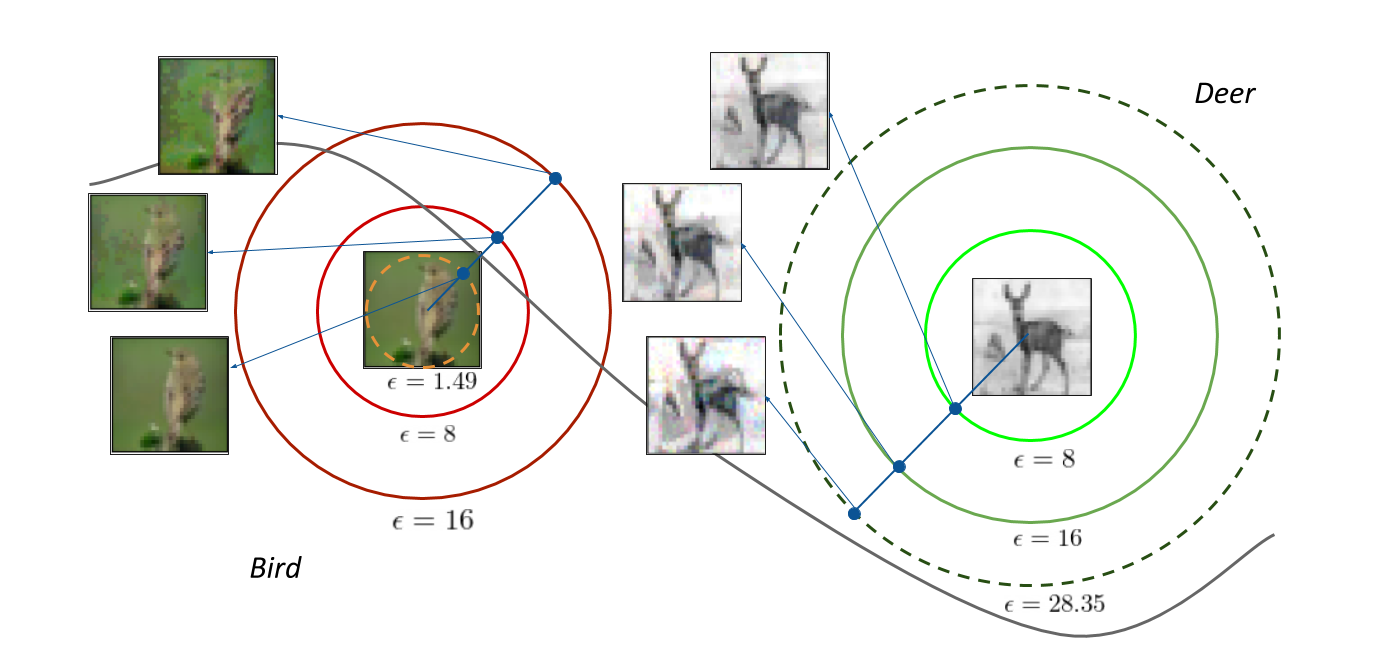Instance adaptive adversarial training:
Improved accuracy tradeoffs in neural nets
Yogesh Balaji Tom Goldstein Judy Hoffman
Facebook AI Research
Paper | PyTorch code

Abstract
Adversarial training is by far the most successful strategy for improving robustness of neural networks to adversarial attacks. Despite its success as a defense mechanism, adversarial training fails to generalize well to unperturbed test set. We hypothesize that this poor generalization is a consequence of adversarial training with uniform perturbation radius around every training sample. Samples close to decision boundary can be morphed into a different class under a small perturbation budget, and enforcing large margins around these samples produce poor decision boundaries that generalize poorly. Motivated by this hypothesis, we propose instance adaptive adversarial training -- a technique that enforces sample-specific perturbation margins around every training sample. We show that using our approach, test accuracy on unperturbed samples improve with a marginal drop in robustness. Extensive experiments on CIFAR-10, CIFAR-100 and Imagenet datasets demonstrate the effectiveness of our proposed approach.
Paper
arxiv 1910.08051, 2019.
Citation
Yogesh Balaji, Tom Goldstein, and Judy Hoffman. "Instance adaptive adversarial training: Improved accuracy tradeoffs in neural nets", arXiv preprint arXiv:1910.08051 Bibtex